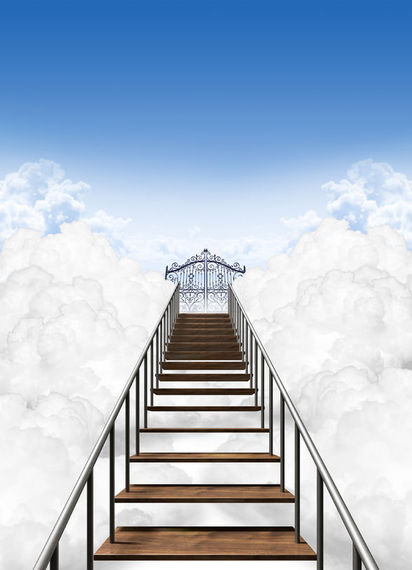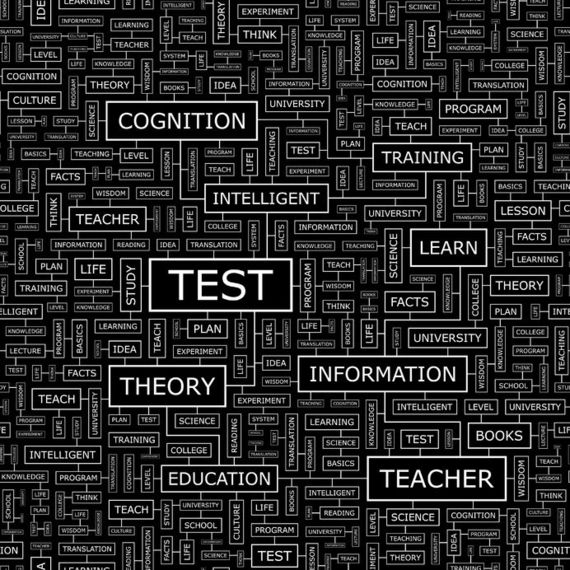"Imagination is more important than knowledge. For knowledge is limited to all we know and understand; while imagination embraces the entire world, and all there ever will be to know and understand." -- Albert Einstein
Charter Schools, hailed by many as the savior of our educational system, funded by technocrats and promoted by super-heroes, now find themselves under heavy fire. Even Success Academy in Harlem has come under scrutiny as evidenced by the recent articles in the New York Times.
The charter school movement promised much: To improve the public schools by providing them with competition; to empower parents and students; to expand choice, to respect and respond to individual needs, to free schooling up from its most stifling regulations, to and allow students and faculty to embark on new and exciting ventures.
That was the ideal. The reality is far different. Charter schools, at their heart, are really not radically different than those they hope to replace. They share the same mantra -- longer school hours, increased student accountability through higher academic standards, more rigorous promotional requirements and a heavy reliance on standardized testing and assessment mechanisms based on state and national standards.
The only difference between them and their public counterparts is that they want to shift power to the private sector, and replace all the inept teachers with apt ones -- those committed to doing the same thing, but only better. It is a concept which someone once likened to aiming to recruiting a team of all-stars, when all-stars are by definition not the norm.
There's really nothing revolutionary about that.
Educational Philosophy
While they differ widely in their pedagogical views, many of the charters, especially those in urban areas, typically use a hard as nails, no excuses approach. Their overall philosophy emphasizes a strenuous and regimented style which they argue is needed to rapidly close the achievement gap. So what else is new?
Their approach rests on a series of assumptions about the nature of learning and the structure of knowledge from education past: It's holds that there are absolute truths--a set body of knowledge which can be accumulated bit by bit, subject by subject--honed by precision; and that any knowledge lacking such precision is unacceptable. The goal, accordingly, is that students be precisely right.
Learning how to learn, problem solving, conceptualizing, and analyzing; dealing with complex issues of values, all take a back seat to the accumulation and regurgitation of inert and obsolete data. Wisdom, the intelligent application of knowledge--because it is not quantifiably verifiable--has no place in the scheme of things.
This is further reinforced by the specious belief that it is both feasible and desirable to impose a single way of learning on all, a tenet which runs totally contrary to the new knowledge technology in which individualization and differentiation are fast replacing centralization and standardization. And one which contradicts the self-evident truth that children do not develop at the same pace or in the same way.
Having decreed that the only knowledge deemed worthy is that which is repetitive and objective, it follows that it can only be measured by culturally shared test procedures. From this comes the clarion call for "higher standards" of measurement and results and accountability in such matters.
Testing
The testing mania is the logical extension of this mentality. What these tests measure is intelligence -- the capacity for abstract reasoning and problem solving. In turn, the primary function of our schools is seen as the development of the same intelligence that these tests measure.
Alas, intelligence and intelligence testing, the lodestar of contemporary schooling, is, inherently inequitable. It has no interest in expanding access on a larger scale, traditionally serving instead as an instrument of the ruling meritocracy -- a calculating means for sorting winners from losers, for purpose of reinforcing and expanding the influence of those currently in power. By allowing a few select students from the underclass to participate in higher learning, it simply perpetuates the mythology of openness and access.
Its supporters also tout intelligence as the path to future employment. Studies, however, show that is highly overrated when you consider the relationship between IQ and occupations of high prestige: Even Arthur Jensen, high priest of the IQ, conceded that "Intelligence, via education, has its greatest effect in the assorting of individuals into occupational roles. Once they are in these roles, the importance of intelligence is less marked." In other words, many factors besides intelligence are largely involved in success on the job.
Earlier, Christopher Jencks and his colleagues in their study, On Inequality: A Reassessment of the Effect of Family and Schooling in America, noted that the mastery of cognitive skills is not the primary reason why some are more successful than others as adults. This has been further underscored by Daniel Goleman in his work on emotional intelligence.
This does not mean our schools should ignore intelligence but that they complement it and work strenuously towards identifying and nurturing skills, talents, and mindsets that have more influence on adult success than does IQ.
Such an approach would recognize other forms of human excellence and a more balanced human development and assign priority to creativity and independent thinking; emotional and social intelligence; enhanced self awareness and self-control; better ways in which intellect and emotion might work in tandem; an elevated political and social consciousness; and a greater capacity for working with others.
Educational Racism
This intelligence "bias" in our schools falls most heavily and discriminates most greatly against children of color and of disadvantaged. It is endemic in our public schools.
The curriculum for them often consists of a series of acquisition of skills, through a great reliance on worksheets more than real books, emphasizing rote practice more than the exploration of ideas, and memorization more than thinking. Drill and grill is the overriding leitmotif.
From his first-hand observation of inner city schools, educator, Jonathan Kozol, describes a mechanical, process for drilling black and Latino children in "obsessively enumerated particles of amputated skill associated with upcoming state exams."
Adds Kozol: "The children of the suburbs learn to think and to interrogate reality," while inner-city kids "are trained for nonreflective acquiescence." At one of the urban schools he visited, a teacher told him, "If there were middle-class white children here, the parents would rebel at this curriculum and stop it cold."
Many charter schools have simply followed suit and even raised the ante. Enrolling mainly poor and minority students, they emphasize high academic standards, strict disciplinary codes, extended instructional time, and targeted support for low-performing students.
Not all, but many, have policies and styles of teaching calculated to breed compliance. In the process, the children are for the most part stripped of autonomy and any semblance of independence
iPads may have replaced paper workbooks, but the approach is the same. Rote recall is still promoted ahead of real understanding. Individuality, creativity, and the imagination count for little.
The results are devastating. The destruction of the spirit of the young as would be learners and undue stress and anxiety and aberrant behavior resulting from the inordinate pressure under which they have been placed.
Experimentation
When people evaluate charter schools they most often measure them against the same criteria by which they evaluate public schools -- better academic outcomes. Schools which are truly experimental, however, should be judged not by their ability to outdo the system at its own game, but by the risks they take, the respect they accord their students, and the new paths to learning they have charted. Their purpose is to play gadfly to the system not to merely refine and reinforce practices which have long failed.
Through its unholy partnership with high stakes testing, the charter school movement has diverted our attention from the real issues confronting us and discouraged genuine innovation and reform. To paraphrase Einstein, "Charter schools are to experimentation as military music is to music."
Larry Paros is a former high-school math and social-studies teacher. He was at the forefront of educational reform in the 1960s and '70s, during which time he directed a unique project for talented underprivileged students at Yale and created and directed two urban experimental schools, cited by the U.S. Office of Education as "exemplary" and later replicated at more than 125 sites nationwide.





